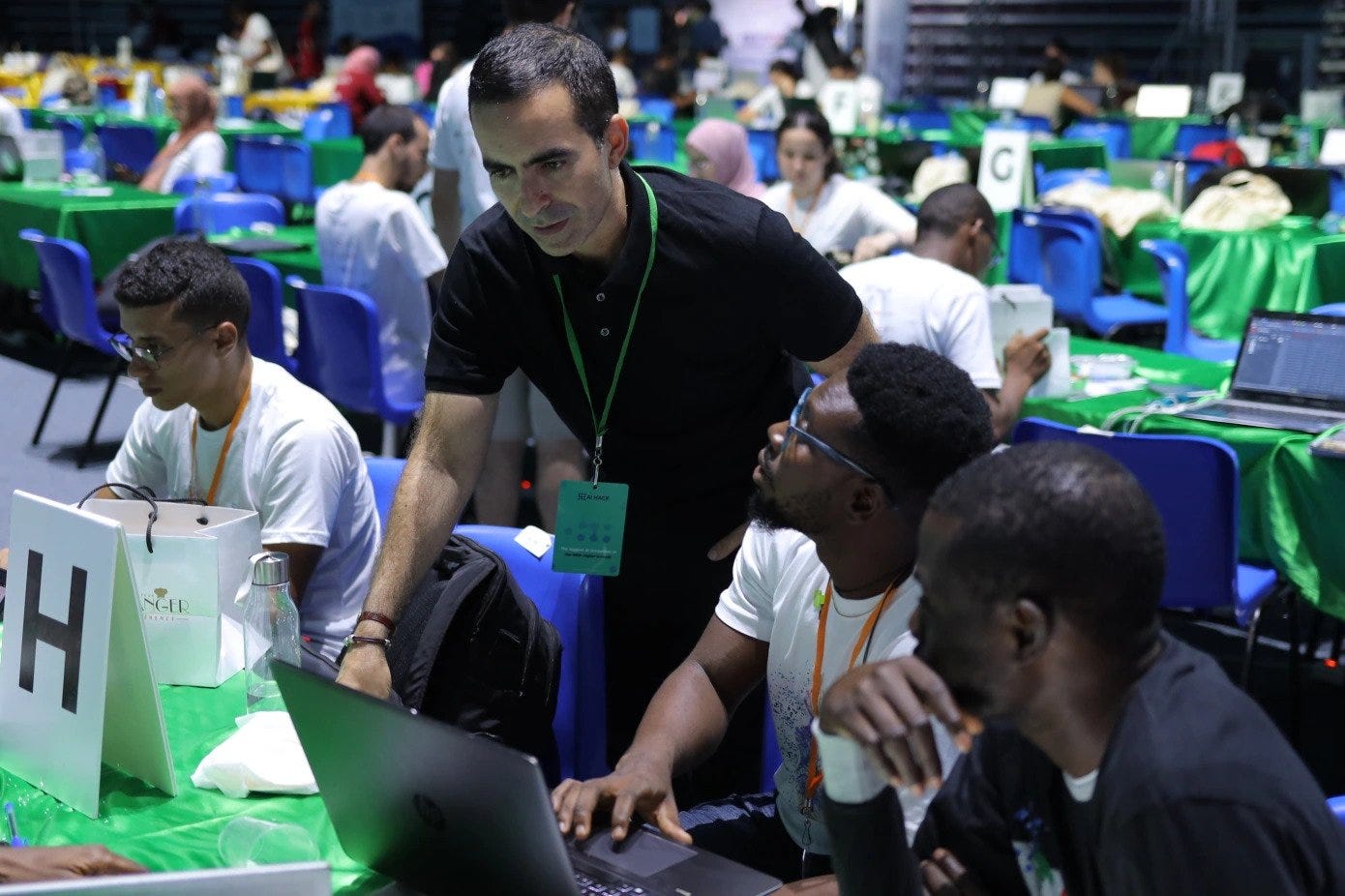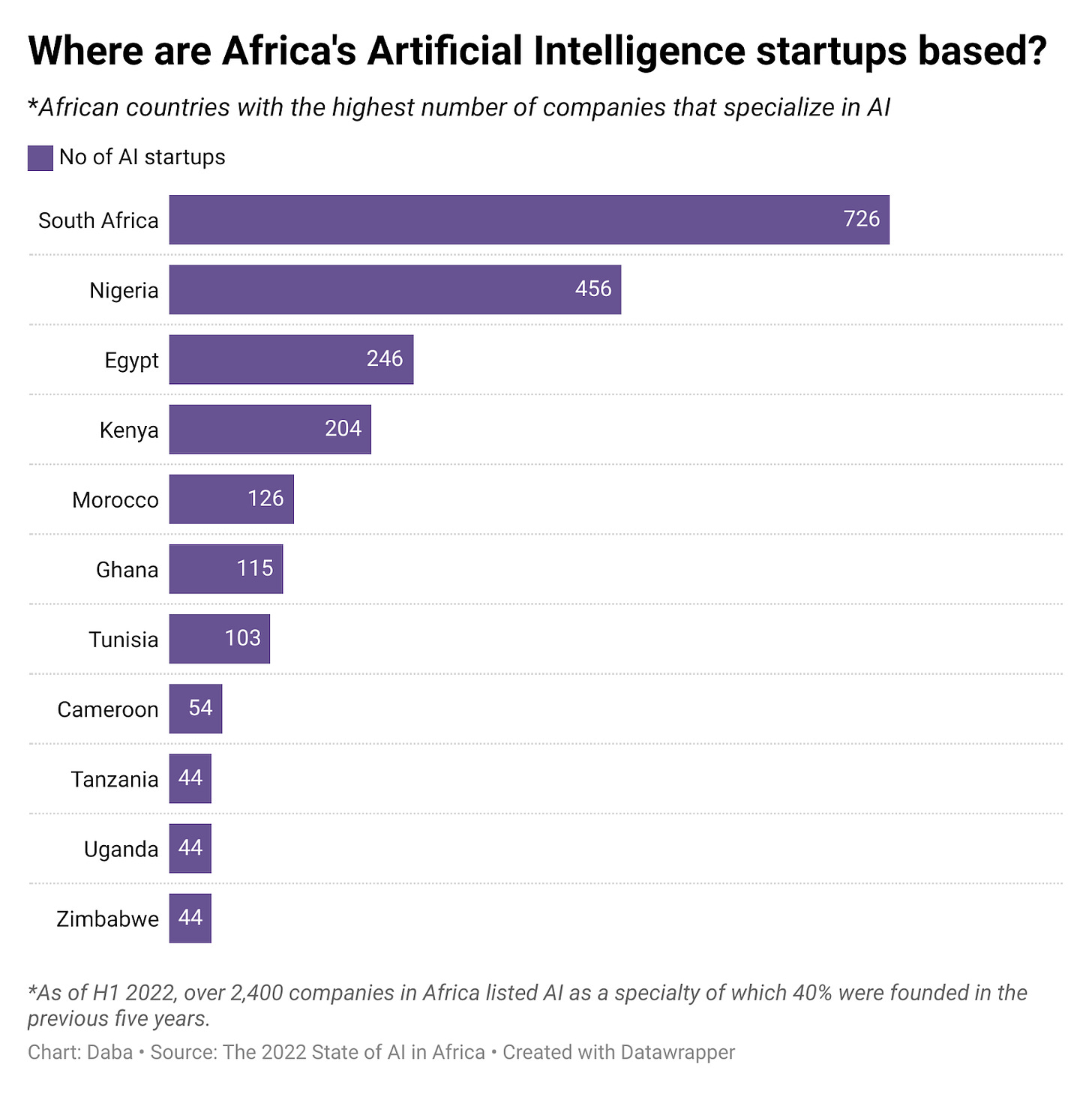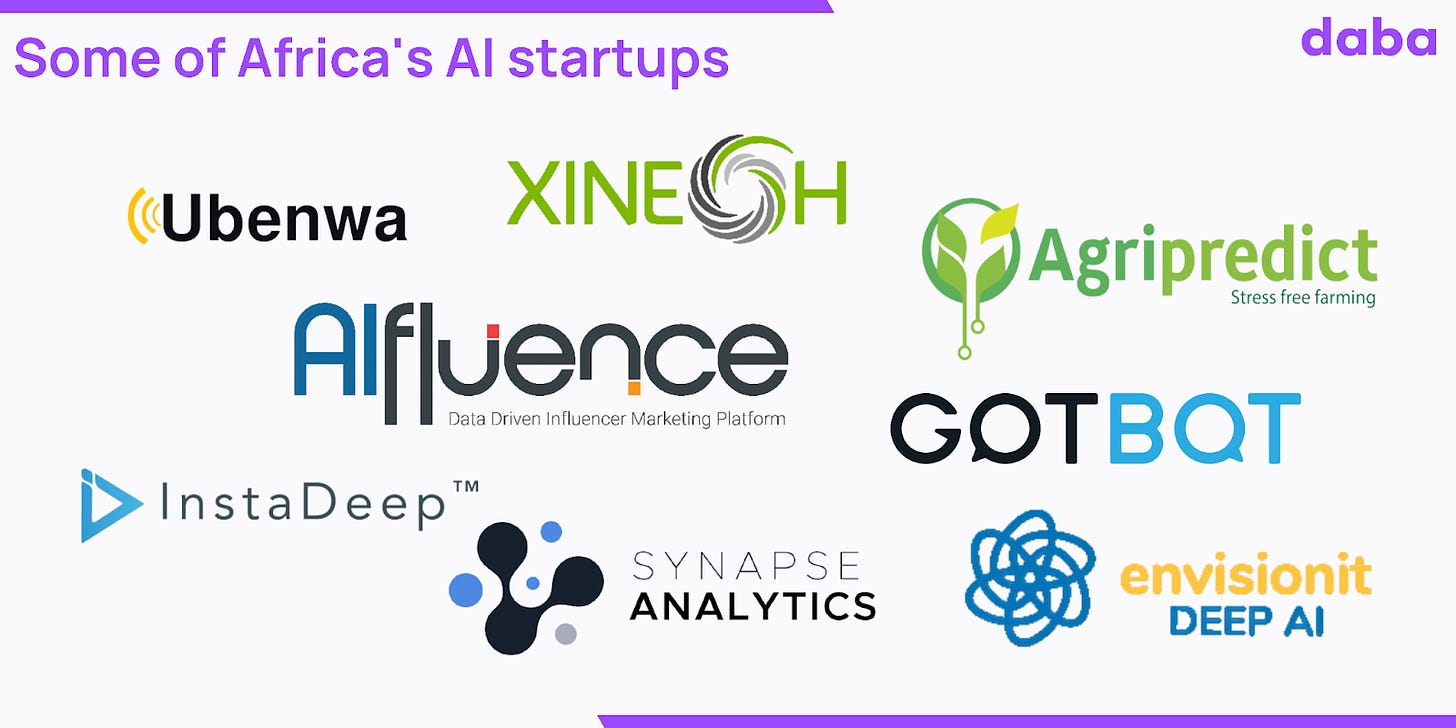Pulse54: Spotlighting Africa’s AI startups
Capturing only 10% of the fast-growing global Artificial Intelligence market could expand Africa’s economy by up to $1.5 trillion by 2030. Meet some of the startups working to make that a reality.
Hey there! Welcome to another edition of Pulse54, your simple guide to African business, economy, finance, and technology.
In this edition, we are putting the spotlight on Artificial Intelligence in Africa; the incredible potential, the challenges, and the startups at the forefront of AI innovation on the continent.
If you haven't subscribed to this newsletter, join our active readers curious about Africa.
Let’s dive in now!
Artificial Intelligence has been generating buzz worldwide.
With the release of OpenAI's consumer-facing ChatGPT tool and the viral success of other generative AI tools like Dawn AI, Copy AI, Dall-E, and Midjourney, interest in AI has reached unprecedented heights.
These tools leverage vast amounts of data, fast processing, and intelligent algorithms to generate text or images in seconds in response to user prompts.
But AI’s impact goes beyond generating text or images; it's being used to solve a wide range of problems across different sectors globally, including Africa.
African startups and businesses are increasingly adopting the technology in fields that include healthcare, education, agriculture, and transportation to improve efficiency and drive growth.
African startup gone global
One noteworthy startup is InstaDeep, which was founded in Tunisia in 2014 and creates AI products for businesses.
The startup made headlines when it was acquired by Germany's largest vaccine maker, BioNTech, for up to $682 million in January, making it the largest African startup acquisition.

While InstaDeep's success grabbed the spotlight, there are many other exciting startups across Africa using AI to solve various problems.
Let's take a look at some you should keep an eye on:
Ubenwa Health (Nigeria): Ubenwa combines engineering, AI, and medical research to detect illnesses and diseases such as birth asphyxia, a leading cause of infant mortality worldwide.
AIfluence (Kenya): AIfluence's advanced algorithms power influencer discovery and evaluation, campaign management, and performance measurement for both organic and paid influencer marketing campaigns.
GotBot (South Africa): GotBot is an AI chatbot solution that automates and improves the quality of responses to business audiences, all within a central messaging dashboard.
Synapse Analytics (Egypt): Synapse Analytics helps Egyptian businesses adopt AI through its diverse product suite. Their software, Konan, empowers data science teams to deploy and scale AI models.
Xineoh (South Africa): Xineoh predicts consumer behavior using AI, giving businesses a competitive edge in improving efficiency and customer satisfaction.
Envisionit Deep AI (South Africa): Envisionit Deep AI builds innovative medical solutions that utilize the power of AI to transform healthcare professionals' diagnostic and treatment processes.
AgriPredict (Zambia): AgriPredict, established in 2016, leverages AI in agriculture as a risk and disaster management tool.
Africa’s AI potential is significant
Capturing only 10% of the fast-growing global Artificial Intelligence market could expand Africa’s economy by as much as $1.5 trillion by 2030—about 50% of its current gross domestic product (GDP)—according to this report.
Africa's large youth population, growing middle class, and increasing access to mobile and internet technologies position the continent to become a leader in AI.
The opportunity lies in addressing socio-economic challenges, improving business efficiency, and creating consumer-focused AI solutions for the continent’s massive population.
For example, in the healthcare sector, where Africa has a shortage of healthcare workers, AI can support medical professionals in diagnosis, treatment, and remote healthcare delivery.
In the banking industry, AI-powered chatbots have become the norm, making it easier for banks to manage customer interactions online. Credit infrastructure companies like Migo and Indicina offer AI systems to gather and analyze data on potential clients, enabling informed lending decisions.
Navigating the barriers
Quantifying the AI market opportunity in Africa is challenging, but estimates suggest it could reach $190 billion by 2025. However, there are significant challenges to widespread adoption.
Africa faces a shortage of skilled AI professionals (the African Development Bank estimates a shortage of around 300,000), a lack of investment, inadequate infrastructure, and limited access to global research.
Despite these obstacles, founders' ingenuity, the establishment of AI communities like Deep Learning Indaba and Zindi, the return of globally-trained African experts, and investments by multinational companies such as IBM, Google, Microsoft, and Amazon in AI labs on the continent are addressing some of these challenges.
To fully harness the potential of AI in Africa, government involvement and funding are crucial in the areas of research and development, upskilling and promotion of STEM education, and infrastructure.
These efforts will enable Africa to have a seat at the global AI innovation and adoption table.

Looking ahead, the adoption of AI in Africa is on the rise across various sectors, from software development and finance to healthcare, agriculture, and transportation.
With the recent interest from big tech personalities, companies, and investors triggered by ChatGPT and similar technologies, Africa's AI proponents have a unique opportunity to build not only for the local market but also for the world.
However, to truly compete in AI, it's essential to establish connections between government, business, and academia.
That way, African countries can leapfrog their peers and unlock the full potential of AI.
That's it for this edition of our newsletter.
What do you think about AI in Africa? Let us know in the comments!
Enjoyed reading this? Download the Daba app to get daily bite-sized insights into African economies, industry and country reports, and access investment opportunities.
Stay tuned to Pulse54 for more updates on Africa's technology landscape and the innovative startups shaping the future.
Until next time!





